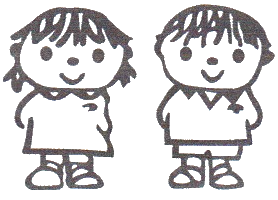TWO YEAR OLD POLICY
Nelmes Pre-School aim to provide the highest quality education and care for all our children. We aim to offer a warm welcome to each individual child and family and to provide a caring environment within which all children can learn and develop as they play.
How your child plays, learns, speaks, and acts offers important clues about your child’s development. Developmental milestones are things most children can do by a certain age. At Nelmes we undertake developmental checks on all children between the age of 2-3 years.
The Early Years Foundation Stage (EYFS) requires that parents and carers must be supplied with a short written summary of their child’s development in the three prime learning and development areas of the EYFS: Personal, Social and Emotional Development, Physical Development and Communication and Language. This should be completed when the child is aged between 24-36 months.
The aims of the progress check are to:
Review a child’s development in the three prime areas of the EYFS.
Share this information with parents at an agreed time to ensure they have a clear picture of their child’s development.
Enable Nelmes staff to understand the child’s needs and plan activities and experiences to meet them in the setting.
Enable parents to understand the child’s needs and enhance development at home, with support from the setting.
Note areas where the child is progressing well and identify any areas where progress is less than expected.
Describe actions the setting intends to take to address any developmental concerns (including working with other professionals where appropriate).
The progress check will:
Be completed by a practitioner who knows the child well and works directly with them in the setting – this will normally be the child’s key person.
Arise from the ongoing observational assessments carried out as part of everyday practice in the setting.
Be based on skills, knowledge, understanding and behaviour that the child demonstrates consistently and independently.
Take account of the views and contributions of parents, and the child if appropriate.
Take into account the views of other practitioners and, where relevant, other professionals working with the child.
Nelmes Pre-School intends that the progress check will:
Be clear and easy to read, avoiding unfamiliar jargon, acronyms or terminology (with interpretation and translation available where appropriate).
Present a truthful yet sensitive reflection of what the child can do and their achievements to date.
Identify areas where the child is progressing at a slower pace than expected.
Recognise parents’ in-depth knowledge of their child by incorporating their observations and comments, and explain how their child’s learning and development will be supported in the setting.
The EYFS requires that the progress check is carried out when a child is age two, this includes any child that starts at the setting between the ages of 24-36 months.
Practitioners will agree with parents when is the best time to provide the check and the following factors will be considered before commencing:
The setting will allow a settling in period for the child to enable their key person and other practitioners to build up good knowledge of the child’s development, abilities and interests before completing the progress check. The Key person will share the progress during an open class room which are held termly.
If a child has a period of ill health or a significant event in their family (e.g. family breakdown, bereavement or the arrival of a sibling) it may be appropriate to delay the check.
If a child has a period of absence or irregular attendance or attends for limited sessions.
Where possible, we will carry out the progress check in time for parents to share it with the health visitor at the two year old health and development review.
If the child has already had the health visitor 2 year old check the setting is still required to carry out the EYFS 2 year old check.
Children attending more than one setting or changing settings
In the case of children who are attending more than one setting, the progress check will normally be carried out by the child’s key person at the setting where the child spends the greatest amount of time each week.
However, the setting carrying out the progress check will consider whether it would be helpful to get the views of other practitioners working with the child at the other setting or settings.
If a child moves between settings between 24 and 36 months, leaders and managers of the respective settings will agree which provider will complete the check. It will usually be the setting where the child has spent the most time to date.
Preparing the progress check for a child with identified disabilities or special educational need
If the progress check is for a child with an identified disability, medical need or special educational need the setting will take into account if the child is already being supported by other professionals. Then the setting will agree with parents how the views and contributions of those professionals can be sought.
The focus will be on what the child can do, their unique and individual characteristics and their development to date, rather than describing their development in terms of their need or disability.
Information sharing
The setting will include in the child induction process the sharing of both the child’s health visitor contact details.
The progress check is a statutory requirement of the EYFS. The setting will seek the consent of parents to share information from the check directly with relevant professionals.

